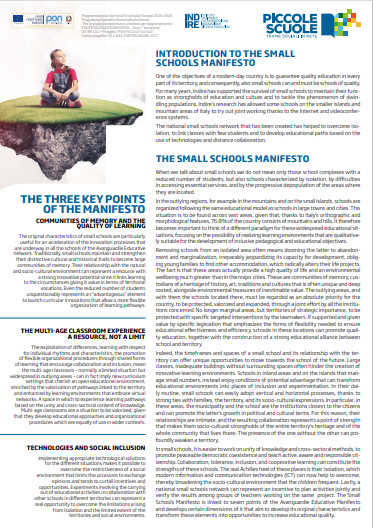
If one of the objectives of a modern country is to guarantee quality education nationwide, then also small schools must provide quality education.
Over the years, the national small schools network created by Indire has helped to overcome isolation, to link classes with few students, and to develop educational pathways based on the use of technologies and distance collaboration.
A key aspect is to transform a restriction (few students) into a resource (high quality), by developing a different paradigm for these widespread education situations with the aim of creating learning environments that are qualitatively adequate and oriented to a definition of inclusive pedagogical and educational objectives.
These territories are communities of memory, custodians of a heritage of history, art, traditions and cultures, that is unique and precious.
The outlying areas, and with them the schools located there, must be regarded as an absolute priority for the country, to be protected, valorized and expanded, through a joint effort by all the institutions concerned.
In small schools, it is easier to work on unity of knowledge and cross-sectoral methods, to promote peaceable democratic coexistence and teach active, aware and responsible citizenship. Collaboration, tolerance, inclusion, and cooperative learning can constitute the strengths of these schools.
Last but not least, a national small schools network can represent an incentive to plan activities jointly and share the results among groups of teachers working on the same project.



